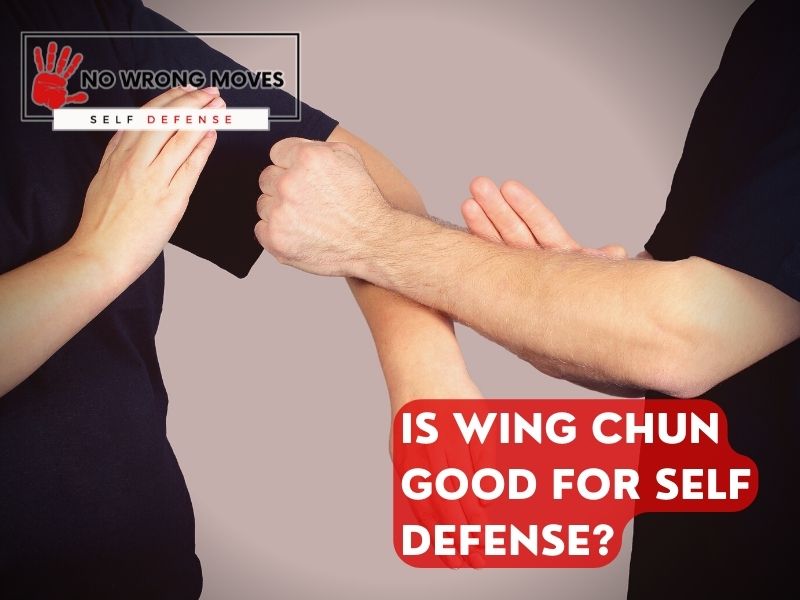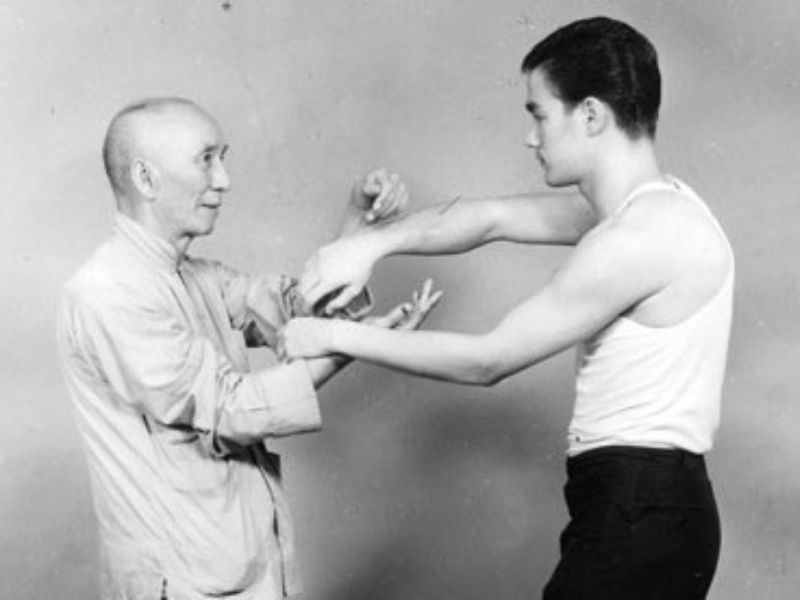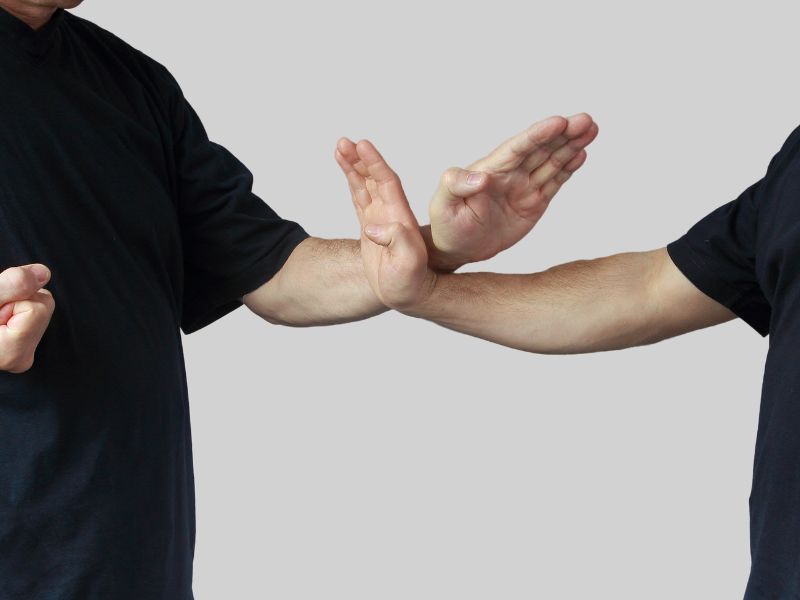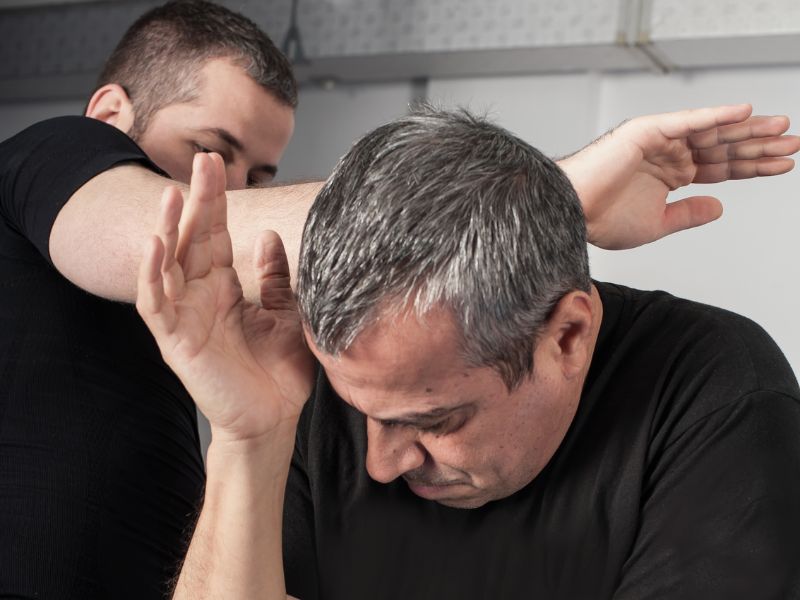
Wing Chun is a form of martial arts that has been around for centuries. It's typically used for self-defense, and tons of people have found great success with it. But still, there are some who wonder if it's any good good for self-defense.
Which is a fair thing to be curious about, of course! Learning Wing Chun will prove to be a massive commitment, after all, asking for great amounts of time and effort out of you.
In this blog post, we'll be taking a closer look at Wing Chun and determining whether or not it is the right choice for you, especially when it comes to defending yourself in dangerous situations.
The History of Wing Chun

The history of Wing Chun Kuen can be traced back to a Southern Shaolin Temple, in Fu Jian Province. The temple was built during the Qing Dynasty, and it was home to a community of monks who were skilled in martial arts.
The monastery became a target for the government, who saw the monks as a threat to their power. In 1644, an army was sent to attack the temple, and after a long battle, the temple was destroyed and many of the monks were killed.
Five of the leading monks did, however, manage to escape, and they went on to teach their martial art to others.
The art of Wing Chun Kuen has been passed down from generation to generation, and it is so effective that it is still being practiced today, a testament to its enduring nature.
The techniques and principles of Wing Chun are based on the philosophy of yin and yang, and aim to provide practitioners with a method of self-defense that is both effective and ethical.
And thanks to this kind of efficiency, Wing Chun Kuen is an art enjoyed by people worldwide.
How Effective Is Wing Chun For Self Defense?

So, is Wing Chun effective for self-defense? The answer is yes!Wing Chun is an incredibly effective martial art for self-defense. In fact, it's often said that Wing Chun is the most practical and efficient martial art for self-defense.
One of the reasons why Wing Chun is so effective is because it uses an attacker's own momentum against them. This means that even if an attacker is larger and stronger than you, you can still defend yourself using Wing Chun techniques.
Another reason why Wing Chun is effective is that it emphasizes simplicity over complexity. There are no fancy moves or complicated techniques to learn—just simple, direct, and effective techniques that anyone can learn.
Finally, Wing Chun is effective because it can be used by people of any size or strength. Thanks to its use of an attacker's momentum and its focus on simplicity, Wing Chun techniques can be used effectively by men and women of all shapes and sizes.
How Effective Is Wing Chun In A Street Fight?

Wing Chun is a martial art that is known for its effectiveness in a street fight. It focuses on using quick, powerful strikes to take down an opponent. Wing Chun is also known for its use of close-range fighting techniques, which makes it ideal for defending oneself in a street fight.
In fact, many law enforcement officers and military personnel are trained in Wing Chun because of its effectiveness in real-world situations.
From what I've seen, sparring has proven to be a valuable asset in this regard.
Stepping out of your comfort zone to spar with practitioners of other systems and training methods can give you a clearer understanding of your abilities, your training gaps, and what your training should encompass.
While I believe Wing Chun can be an effective standalone self-defense system, it's still important for you to gain that kind of firsthand experience for yourself.
Some aspects, such as forms and chi sau, may have their limitations in preparing you for real-world scenarios. And yes, you absolutely should supplement your training with practical experience and testing to truly excel in Wing Chun.
Why Choose To Learn Wing Chun Over Another Discipline?

Benefit #1: Practicality
One of the benefits of learning Wing Chun is that it is a practical martial art. What this means is that the techniques you learn can be applied in a real-world self defense situation.
Unlike some other martial arts styles that focus on sport or competition, Wing Chun is designed specifically for self defense purposes.
Benefit #2: Efficiency
Another benefit of learning Wing Chun is that it is an efficient martial art. This means that the techniques you learn are designed to be used against larger and stronger opponents.
With Wing Chun, you will not waste any time or energy on techniques that will not work in a real self defense situation.
Benefit #3: Versatility And Applicability
Another benefit of learning Wing Chun is that it can be learned by people of all ages and sizes. This makes it an ideal martial art for self defense purposes since anyone can learn and use the techniques effectively regardless of their physical size or strength.
The Wrap-Up
So while there may be differing opinions on the effectiveness of Wing Chun as a form of self-defense, the key to success still definitely lies in realistic training and practical application.
Sparring with practitioners of other systems can be a valuable asset in gaining experience and a clearer understanding of one's own training. While Wing can certainly be beneficial for self-defense, it shouldn't be solely relied upon.
Be sure to approach Wing Chun training with an open mind and a willingness to test the system in realistic scenarios. And if you have the dedication and put in the training, Wing Chun absolutely can be a formidable means of self-defense.
Check out other martial arts here!
FAQs To Consider When Choosing A Martial Arts Discipline For Self-Defense
What Are the Key Factors to Consider when Choosing a Martial Arts Discipline for Self-Defense?
One of the most important factors to consider when choosing a martial arts discipline for self-defense is the style of fighting. For example, disciplines like karate and taekwondo emphasize striking, while Brazilian Jiu-Jitsu and Judo focus on grappling.
Another key factor is the level of contact allowed in training. Some disciplines, like Muay Thai, allow full-contact sparring, while others, like Aikido, prohibit any strikes to the head or face.
What Are the Benefits of Training in A Martial Art for Self-Defense?
Joining a martial arts class can provide many benefits beyond just learning how to defend yourself.
For one, it can be a great workout. Many martial arts styles involve a lot of cardiovascular activity, as well as strength and flexibility training. Even if you're not interested in getting in shape, the physical benefits of martial arts training can be helpful in reducing stress and tension.
In addition, knowing how to defend yourself can give you a sense of safety and confidence. And finally, learning a new skill is always satisfying and can help you meet new people. So whatever your reasons for wanting to train in martial arts, there are plenty of good reasons to give it a try.
Joining a martial arts class can provide many benefits beyond just learning how to defend yourself.
For one, it can be a great workout. Many martial arts styles involve a lot of cardiovascular activity, as well as strength and flexibility training. Even if you're not interested in getting in shape, the physical benefits of martial arts training can be helpful in reducing stress and tension.
In addition, knowing how to defend yourself can give you a sense of safety and confidence. And finally, learning a new skill is always satisfying and can help you meet new people. So whatever your reasons for wanting to train in martial arts, there are plenty of good reasons to give it a try.
[author-box-jpx-fitness]
